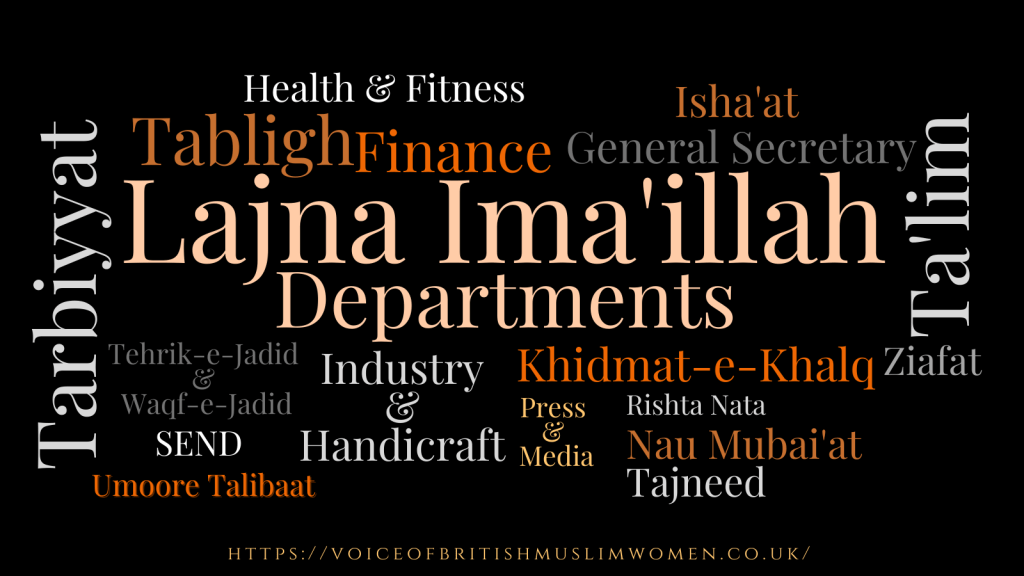
Maariya Thaker, Luton
In our local Lajna branch, a meeting is held at the end of every month, where we are provided with the opportunity to discuss and present a range of different topics from each respective department of our branch, but also have the opportunity to meet with one another and this often turns into a nice gathering as well, with light refreshments served at the end of each meeting. Lajna is the Ahmadiyya Muslim women’s auxiliary organisation and this year marks our centenary.
During COVID-19, much of the our activities, including meetings, were held online, so, there was a positive increase in the use of social media. Although the purpose of educating ourselves was fulfilled, at times it was difficult to feel a personal connection over a laptop or phone screen, so returning to in-person meetings has proved especially important for those members who are not on social media or struggle with normality and life post-pandemic. Not only do these meetings allow us to feel ever connected with the happenings of the Community, but also find a unity and sisterhood between us all and the chance to gain invaluable knowledge.
Within our Lajna organisation, there are several departments and offices, each dedicated to a different purpose. Some of these departments include tabligh, which is for conveying the message of Ahmadiyya Islam to those outside the Community. Although similar, tarbiyyat focuses internally on the development, and moral training of each individual and ta’lim centres on Islamic education for Lajna. Khidmat-e-khalq is a department dedicated to serving of humanity.
The aim of tabligh is to remind us of different ways to educate and spread the word of the Ahmadiyya Muslim Community, what we believe and respectfully discuss theological differences. This includes holding different events such as leafletting, tree planting, litter picking and other charity events that we either host or can attend. Learning and sharing experiences where we have carried out tabligh gives us confidence and encourages us to engage and initiate conversations where we not only educate others, but are also learn about other beliefs and faiths. In these meetings, we also share ideas for upcoming events, or how we can carry out tabligh collectively.
Tarbiyyat presentations and talks largely focus on self-development as Ahmadi Muslims and general self-improvement. A safe space is created and through discussions, debates, and scenarios, we are able to comfortably ask questions and gain deeper understanding on different things, ranging from social issues and religious topics. Similarly, the purpose of ta’lim is to focus on Islamic knowledge, increasing and revising what we already know. An important aspect of ta’lim is to go through the translation of both the Holy Qur’an and salat (Prayer) to ensure we have the best understanding of our religion and faith. This links back to tabligh; when sharing and educating others about our religion, it is vital that we have a comprehensive and in-depth understanding to be able to engage in intellectual conversations, to ensure we are able to answer any questions and refute any misconceptions. Khidmat-e-khalq presents different ways we can serve humanity and become useful members of wider society. This can often occur on a more local, personal level through helping neighbours, those with health issues and the elderly in any way we are able to, gifts to children’s hospitals or through financial donations, charity events and fundraising on a wider scale. During this time, successes and achievements are also shared, whether that be how many people attended a certain event or how much money was raised for charity at a fundraiser, motivating us as a community to continue doing what we can to support and help others.
There are well over a hundred branches of Lajna up and down the country here in the UK and we all try and follow the amazing setup of Lajna Ima’illah departments that not only helps us in our personal development but also enables us to try and serve humanity and spread peace and thus try in our humble way to make the world a better place.

Recent Comments